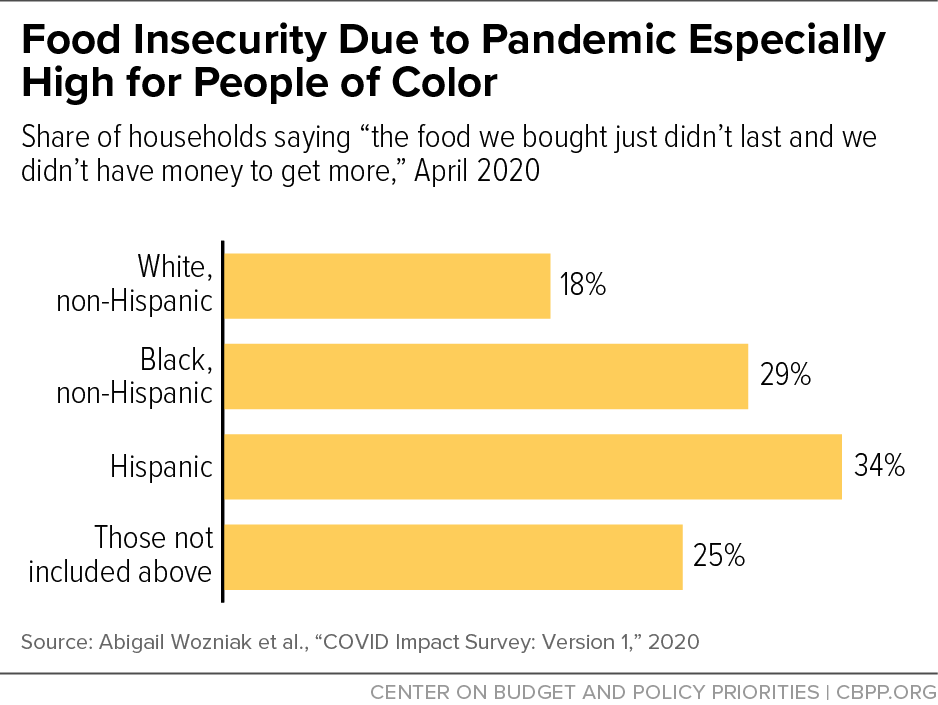BEYOND THE NUMBERS
The health risks and hardship due to rapidly rising food insecurity during the pandemic and economic crisis, which we discussed here, are falling disproportionately on people of color and people with low incomes. Their higher risk of getting sick and dying from COVID-19, losing jobs or income, and being unable to make ends meet highlight the need for additional food aid, such as what House Speaker Nancy Pelosi’s latest relief package proposes.
Many families were already struggling to pay their rent and put food on the table, and they may have significant difficulty weathering the crisis on their own. That’s why we’ve called for measures, such as raising maximum SNAP (food stamp) benefits and fixing SNAP limitations in the relief measures enacted thus far, to help households with the highest risk for homelessness, food insecurity, and other hardships. Speaker Pelosi’s bill includes these and other important relief provisions.
The need for such action is growing clearer as we learn more about the crisis’ effects on people of color. Black and Latino workers, for example, experienced larger employment declines than white workers between February and April. A Washington Post-Ipsos national poll from late April and early May found that 20 percent of Hispanic adults and 16 percent of Black adults reported being laid off or furloughed during the pandemic, compared to 11 percent of white adults and 12 percent of adults of other races and ethnicities.
Food insecurity is also spiking, particularly among people of color. In a national survey with responses from late April, nearly 23 percent of households said the food they bought didn’t last and they didn’t have enough money to get more. The rate was substantially higher for Black (29 percent) and Hispanic respondents (34 percent). (See chart.)
Federal policymakers need to raise SNAP benefits to boost income and reduce hardship, and to stimulate the economy by putting more money in the hands of people who are the likeliest to spend, rather than save, it. We also recommend further suspending SNAP’s three-month time limit, which applies to certain childless adults who aren’t working or participating in job training for a certain amount of time per month — a near impossibility for many if entire sectors of the economy, especially low-wage occupations, remain unavailable. The Families First Coronavirus Response Act, which policymakers enacted in March, suspended the limit but only during the immediate public health emergency. The suspension should remain in effect until the economy improves.
These and other provisions, such as those in the Pelosi bill, would provide much-needed assistance to families who have lost jobs and income and face hardships and health challenges during the crisis, many of whom are from communities of color.

